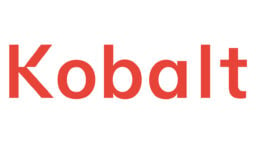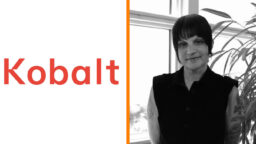MBW’s Inspiring Women series profiles female executives who have risen through the ranks of the business, highlighting their career journey – from their professional breakthrough to the senior responsibilities they now fulfill. Inspiring Women is supported by Ingrooves Music Group.
Towards the end of last year, Jeannette Perez was promoted to President and Chief Operating Officer at Kobalt — a role that will see her run the publisher’s daily operations alongside CEO, Laurent Hubert.
The new title arrived in Perez’s eighth year at the company, during which time she’s risen the ranks across multiple leadership positions that started in the sync and brand partnerships department.
In her new role, Perez tells us that she’s focused on putting creators first, strengthening global operations, investing in staff and furthering diversity, equity and inclusion. “My focus is our songwriters and our people,” she says.
Prior to joining Kobalt in 2014, Perez spent nearly eight years at Sony. There, she was hired as an Associate Director in what was then a growing TV and film business at RCA’s J Records and left as VP of Music for Brands and Advertising/Licensing at the parent company.
She started her music business career at BMG where a law school degree landed her a job in the business and legal affairs department.
Despite her success on the business side of music, it was front of stage where Perez first set her sights. “I was always really passionate about music, pop culture, entertainment and film,” she remembers.
“When I was younger, I took guitar and vocal lessons and had the ambition of being an artist or songwriter myself.”
However, she pivoted upon realizing that plan didn’t chime with the expectations of her parents. “My parents, who are immigrants and I’m a first generation American, said you have two choices, ‘You can go to law school or medical school’.”
Perez chose law school and was later happy to discover that there was a career in music beyond being in front of the camera. “That’s how I started learning on my own about different careers in the music and entertainment industry — I researched and studied every single record company, film studio and talent agency, made lists and contacts, and was really aggressive about trying to build a career in the industry,” she says.
Here, we chat to Perez about lessons learned in her career, the evolution of the independent publishing sector and what she’d change about the music industry and why.
What are the biggest lessons you’ve learned across the various different roles you’ve fulfilled in your career so far?
Listen first, speak second is one of the biggest lessons. Success comes with having a really strong work ethic, being proactive, having humility and being confident in yourself. And, most importantly, being a good human. I find that the most successful executives exhibit all of those attributes.
“success comes with having a really strong work ethic, being proactive, having humility and being confident in yourself. And, most importantly, being a good human.”
I’ve learned that teams are key and finding great people is not easy. When you do have great people, you have to do your best to keep them motivated and engaged, give them credit for the work they’re putting in and tell them that they’re doing a great job, because when they look good, you look good.
How do you manage that strong work ethic with making sure that you’re looking after yourself and that you’ve got a good work/life balance?
The question of the century! It’s a challenge. There are times when you put your job first and times when you put yourself first and it’s about finding that balance. I don’t think there’s a perfect way to do it and for each individual person, it’s different depending on the priorities you have in your life and at that moment.
What I do for myself is really appreciate the small things, whether it’s having dinner with my partner as many times a week as I can or taking the time to call my mother. Those things sound small but they are really important to me personally.
You’ve held a few leadership positions in the music industry throughout your career. What have you learned about what it takes to be a good and effective leader?
The key word is team. What makes a good leader successful is their ability to work collaboratively with their team and the ability to support, develop and motivate their staff to see the bigger picture and work hard for a greater goal.
Also, it’s important for a leader to not just manage at a team level but also to manage at an individual level. The way you manage each individual person on your team is very different to the way you manage your team overall.
How do you see the independent publishing sector evolving over the coming years? What’s on the horizon?
Songs are the most important currency in the music business today. Independent publishers like Kobalt and Hipgnosis are going to be at the forefront of making sure that songwriters are paid fairly. Collectively, we are strong and we need to make sure that defending the copyrights of our songwriters and the industry at large is at the top of our list over the next several years.
“Independent publishers like Kobalt and Hipgnosis are going to be at the forefront of making sure that songwriters are paid fairly. Collectively, we are strong.”
As an industry, we’re becoming more and more digital and independent publishers have the ability to be nimble and innovative in how we think about the future of the music industry.
At Kobalt, we’re excited about AMRA, which is our digital collection society. With the number of income sources continuing to grow and consumption at an all-time high, the complexity of the digital landscape continues to multiply. Most collections societies cannot bear that complexity and the challenge of that complexity.
With AMRA, as a digital collection society outside of the US, we know that we’re uniquely positioned to solve this problem via a one licence system, while eliminating the traditional society cultural and pension deductions for our clients. In a world where digital revenue has gone from one-third of total revenue to two-thirds of total revenue, we see AMRA being a differentiator and playing a major role in the future of our business and the industry at large.
Speaking of the amount of money that songwriters earn from the use of recorded music, what would you like to see change?
The ideal scenario is that there is parity between composition and master and we increase the size of the licensing pot. In my view, and I think the view of many, it’s the song that creates engagement and those who write songs should get paid fairly.
For Kobalt, [achieving that] is about advocacy and ensuring that our songwriters have a voice through us. We have the benefit of not being conflicted in this mission to ensure that there is an increase of the licensing pot and the movement towards parity between composition and master or songwriters and labels. We are the biggest player in terms of an independent voice and in terms of pushing that dialogue in the direction of the songwriter.
What are your biggest challenges right now as an independent publisher?
Music continues to be everywhere, as we’ve seen with TikTok, Peloton and many digital, social media and lifestyle brands that drive consumption. The biggest challenge is ensuring that we continually fight to maintain and increase the value of the licensing pot for songwriters to ensure we stay ahead of the digital transformation and its complexities for our clients.
Kobalt is uniquely positioned to do this because [Founder and Chairman] Willard [Ahdritz] was the first to see that there was going to be a digital transformation in the music industry and got ahead of it by creating technology that empowers our ability to find the many royalties that exist out there for songwriters.
We have been able to continually evolve that technology through the further development and growth of that digital transformation so that, as new digital partners come out, we are able to directly build relationships with those partners and collect much more efficiently and quickly than many of our competitors. We will continue to do that.
How about the most exciting development happening in music for you today?
There are a few things. One is that music is borderless and genreless and I think that we will see emerging markets such as Africa, Asia, India and Latin America continue to rise every day. It’s really exciting to be able to hear music from all over the globe and to see that music transcend and surpass borders. Before, we were very localised in how we consumed music but that’s been changing over the last few years and will continue to change.
“it’s really exciting to be able to hear music from all over the globe and to see that music transcend and surpass borders.”
Again, music is everywhere and drives consumption and I struggle to see how companies like TikTok, Peloton, YouTube and Roblox would exist without music. We’ll continue to see new and expanded revenue streams for our songwriters, which is exciting as well.
What advice would you give to someone starting out in the music business now?
Treat your role as if you were running your own business within a business and bring an entrepreneurial mindset to work every day. Find the opportunities to make a difference and take them.
I would also say, be confident in what you know and what you don’t know, don’t be afraid to ask questions and don’t be afraid to be curious.
What would you change about the music industry and why?
Again, the lack of parity between composition and master is a big one. The precedence is antiquated and did not contemplate the digital transformation of the music industry. Also, ensuring that the music industry continues to be diverse and a representation of the diversity of the music, artists and songwriters that we represent within our walls.
Is there anything that you’d like to see the wider music business doing differently or more of that would help achieve that diversity?
One thing is developing and mentoring people within our organizations to ensure that we are promoting from within. It’s about ensuring there are opportunities for people who come from underrepresented communities or who would normally not have access to roles within the music industry.
We can do a better job of bringing diversity into open roles that we have within our organizations as well and look beyond the four or five music companies with whom we recruit from. From a learning and development perspective, once we have people within our organizations, we need to be supporting their growth and development. With all of that, over time, we will create change.
MBW’s Inspiring Women series is supported by Ingrooves Music Group, which powers creativity by providing distribution, marketing and rights management tools and services to content creators and owners.Music Business Worldwide




